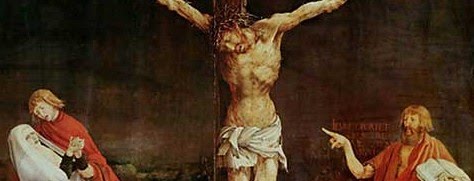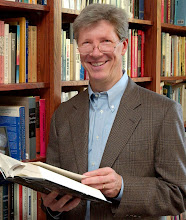Not surprisingly, our polarized divide in America splits us into those who relish the demolition of statues, and those who are mortified. Some say Symbols matter! Others say It’s just a statue – although we might all recall a certain delight when Saddam’s statue was pulled down, or when Lenin’s lay on the turf. Percy Bysshe Shelley’s “Ozymandias,” a poem I learned in junior high school, testifies to the ultimate tumbling of all monuments to human grandeur.
When we witness assaults on monuments, and the reflex to save them, what we see isn’t so much about this or that statue or person. It’s rage at a whole world that has failed us – on both sides of the divide. This debate reveals clearly what I’ve said repeatedly – that everyone is afraid. Half of us are afraid that the world we’ve known and treasured is crumbling around us; the other half are afraid that the world they dream of will never actually dawn. If we just fix this, or save that, we'll stave off all we fear. But in our gut we know it's a vain fantasy.
My questions are: How do we reflect on public images and their hurtful or helpful impact on people? And thus How do we preserve history while understanding why and how it matters? History matters. Rabbi Jonathan Sacks, reminding us that the most common word in the Bible for “sin” is to “forget,” declares that “the guardian of conscience is memory… Civilizations begin to die when they forget.”
Should we forget Robert E. Lee? His statue came down: many were glad, many were miffed. Was he evil – as a person? Or in the cause he life was defined by? By all accounts he was a noble genius – who fought to preserve southernness, including slavery. He was a pious person; but who symbolizes the systematic oppression of black people more than Lee? Does seeing Lee riding Traveler traumatize people? Some, yes. Famously, the Sunday after the war ended, Lee alone responded well when a freed slave walked to the altar of the St. Paul’s Episcopal church in Richmond. Other worshippers were appalled, but Lee knelt next to him at the altar. Not surprisingly, this story is disputed. Should we learn about him, and ponder such a life? Most assuredly.
When my daughter Sarah was little, our family watched the local news, which featured video of me, as a religious leader, laying a wreath at the base of the Martin Luther King statue downtown – on his holiday. Having paid attention in Sunday School, she chided me: “Daddy, you’re not supposed to worship idols.” King isn’t an idol. No one is. The truth is, all people are deeply flawed. If we remove all statues of people with some embarrassing flaw, we’ll have no statues. Lincoln got syphilis from a prostitute, Jefferson owned slaves, King had affairs. The Boston Tea Party was looting, the wanton destruction of somebody else’s property. The history books are jammed with anti-Semites, racists, philanderers, oppressors.
One of the lessons of history is we all have our blind spots. You may feel “woke” on this or that issue. But there’s something horrific in you that you flat out are missing. Lauren Winner wrote a book (The Dangers of Christian Practice) about the letters and diaries of plantation wives, who prayed so very devoutly, Lord, how severely should I punish my slave for what he did? Or, Lord, should I purchase 3 more slaves next week? Or, Lord, how should I read the Bible and pray with my slaves? – numbingly blind to the idea that the Lord might want her to let the people go. I wonder what it is in me, enlightened as I like to think of myself as being?
I totally get that symbols can be hurtful, and can insidiously prop up what alien to our good and noble nature. We have great cause to abolish some symbols. In Germany, if you raise a flag with a swastika, you go to jail. Yet in America, we say the Confederate flag is freedom of speech. But we agree as a democratic people that not every freedom of speech can pass. Nudists can’t express themselves in public. And I’ve found that the people I know who wave a rebel flag and claim freedom of speech rage against a ballplayer taking a knee during the National Anthem. The flag is coded language, shouting to others that they aren't wanted, or included, and had better be very afraid - isn't it?
During the National Anthem, does God favor taking the knee or standing at attention? Does God want rebel flags or is he more German in his soul? I feel sure the desire is for us first of all to dig beneath the surface and confess we are all broken. We are all hypocrites. We all have blind spots. And then that no image or statue will save us, or destroy us. As the Bible reiterates, the only image of God’s goodness we can trust is the image of God in every person. It’s in me, in you, in the other person you think is amazing and the one whose viewpoint makes you apoplectic.
I'd guess God wants 3 things from us just now. (1) That we delve deeply into history, for there is so much that is noble, and so much that is tawdry; this is how we understand ourselves, the perils and the hope. (2) That we are gentle and merciful with one another; you are the spitting image of God, you’re deeply broken, you have blind spots – and the same holds for the other guy. And (3) That we aren’t saved by thinking right about statues or flags or parties or positions; they all matter, but they are as substantial as that crumbled statue Shelley portrayed in “Ozymandias.” And so are we. So let's figure all this out. Together. Symbols matter. What they symbolize matters far more. It's the image of God in all of "we the people" that God is focused on, and dreams that we will be too.











